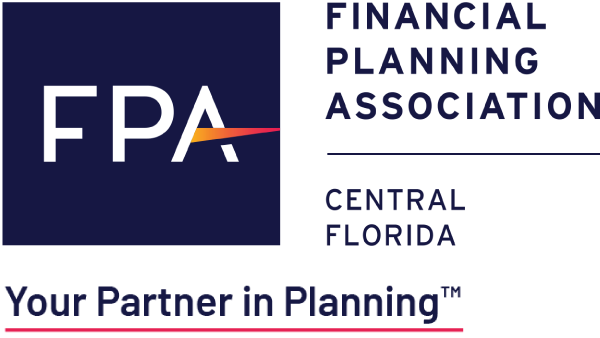
A Dozen Ways Financial Planning Can Benefit You — Now and in Any Stage of Life
 What’s keeping you from gaining a better handle on your finances and your future? It could be a preconceived notion about financial planning.
What’s keeping you from gaining a better handle on your finances and your future? It could be a preconceived notion about financial planning.
Financial planning isn’t just for the wealthy, nor is it just for people who have retirement in mind. So who is it for?
Financial planning is for anyone who has goals they want to achieve, people they want to take care of, risks they need to address, assets they want to grow and protect, financial issues they want to resolve, or a legacy they want to leave.
Really, then, just about anyone, in just about every stage of life, from the 20s right on through to retirement age, can benefit from a measure of financial planning.
But what exactly is financial planning? In a nutshell, it’s a game plan for how to most effectively grow, protect and use the resources you have — assets, income, etc. — in order to call your own shots and “get where you want to go in life,” explains Peter J. Creedon, a Certified Financial Planner ™ with Crystal Brook Advisors in New York City. “Life is a balancing act. Financial planning provides the means to maintain that balance.”
Financial planning is a dynamic process where, with the help of a specially trained financial professional who is looking out for your best interests, you develop a big-picture strategy for managing your financial resources, so you’re in position to fulfill your short-term and long-term goals, with the flexibility to adjust on the fly as changing circumstances and life events dictate.
Let’s look past the preconceived notions for what financial planning can do for you, now and throughout your life:
1. It shows you the big picture, not just a slice of it. Financial planning is about synthesizing every aspect of your financial life into a coherent, orchestrated plan, so that all the disparate parts run smoothly as a whole.
It’s important to note that not all professionals who call themselves “financial advisors” have the training or the professional qualifications to develop such a plan. Instead, they may be qualified to handle only parts of the big picture — your insurance needs, for example, or your stock portfolio. Certified Financial Planner ™ professionals must undergo in-depth training to help clients with big-picture planning, factoring in:
• your current financial picture (income, expenses, cash reserves, net worth, debt, etc.);
• your goals, short- and long-term;
• your protection needs (insurance to address your most pressing risks: life, health, disability, home, auto, etc.);
• investments (risk tolerance, asset allocation, etc.,);
• retirement/ financial independence;
• taxes; and
• wealth preservation and transfer
Working with a Certified Financial Planner ™ is like having a doctor who’s trained to help you with every aspect of your health, as opposed to one whose expertise lies only in orthopedic surgery or in treating cancer, for example.
2. It gives you an objective read on where you stand today. How much do you actually bring in each month, and how much do you spend? Where does your money actually go? Where might there be an opportunity to cut expenses in order to set aside more to achieve your goals? The financial planning process provides clear answers to these key questions. “Controlling cash is essential to controlling life. Everything else appears to evolve from there,” explains Certified Financial Planner ™ James H. Guarino of Moody, Famiglietti & Andronico in Wakefield, MA.
3. It gives you a reason, and a framework, to set — and meet — goals. Financial planning at its core shows people a clear path to realizing their dreams, fulfilling their goals and controlling their own destiny to the greatest extent possible.
4. It gets you focused on priorities. With goals come priorities. Some people choose to prioritize saving for retirement, others to set aside money for a long, exotic vacation. For some, paying down debt is a must; for others, saving toward a child’s college education is a high priority. Financial planning allows you to set and order your priorities, then build strategies to address them.
5. It helps you transition from one stage of life to the next. A person’s priorities and needs change along with their circumstances. Financial planning is a process designed with built-in flexibility to help people adjust to their new realities, whether it’s putting strategies in place to help a couple make the transition to homeownership or parenthood, or to help someone shift from their working life to retirement, with all the financial transitions that shift entails.
6. It shines a light on areas where you and your assets need protection. The more life enriches us — with a spouse and/or a child, with a home, with new professional opportunities and greater income — the more important it becomes to protect ourselves from the risks that threaten the things we cherish, like our family, our home and property, and our ability to work and earn an income. There are insurance products designed specifically to address those risks. The financial planning process reveals the biggest risks you face and the insurance options for addressing them.
7. It reveals ways to minimize your tax burden. When it comes to the tax code, you don’t know what you don’t know. Financial planning helps illuminate ways to reduce your tax tab.
8. It shows you ways to leave a legacy for loved ones. If one of your priorities is preserving assets in order to pass them on when you die, financial planning provides strategies for protecting those assets while also serving as a gateway to more specialized estate planning.
9. It gives you a trusted ally and an expert guide. Everyone could benefit from an objective perspective on their finances from a professional who’s specifically trained to protect the best interests of their clients. Troubleshooting, problem-solving and serving as both sounding board and strategist are part of a Certified Financial Planner’s™ job description.
10. It gives you options. There’s more than one way to get where you want to go in life. CFPs are trained to build flexibility into the plans they develop for clients, so when events occur or circumstances change, the plan can be revisited and adjusted on the fly to keep the client on course.
11. It gives you an actual plan. One result of the financial planning process is you get a document (or set of documents) that spells out all the aforementioned elements in plain English.
12. It rewards you now — and later. The peace of mind gained in having an actual financial plan, drafted by a professional, is immediate and immeasurable. And there can be immediate quantifiable benefits, too, such as the gains in investment portfolio value that a reallocation of assets can bring. But don’t underestimate the long-term benefits, either. Those extra dollars you began to set aside each month as part of your financial plan could grow enough over time to allow you to retire earlier than you imagined, to launch a business in a field you’ve long aspired to work in, or to buy that beach house you’ve been dreaming about.
The first step in that direction is to connect with a Certified Financial Planner™. Visit www.PlannerSearch.org, the Financial Planning Association’s searchable national database of personal finance experts, to find one in your area.

